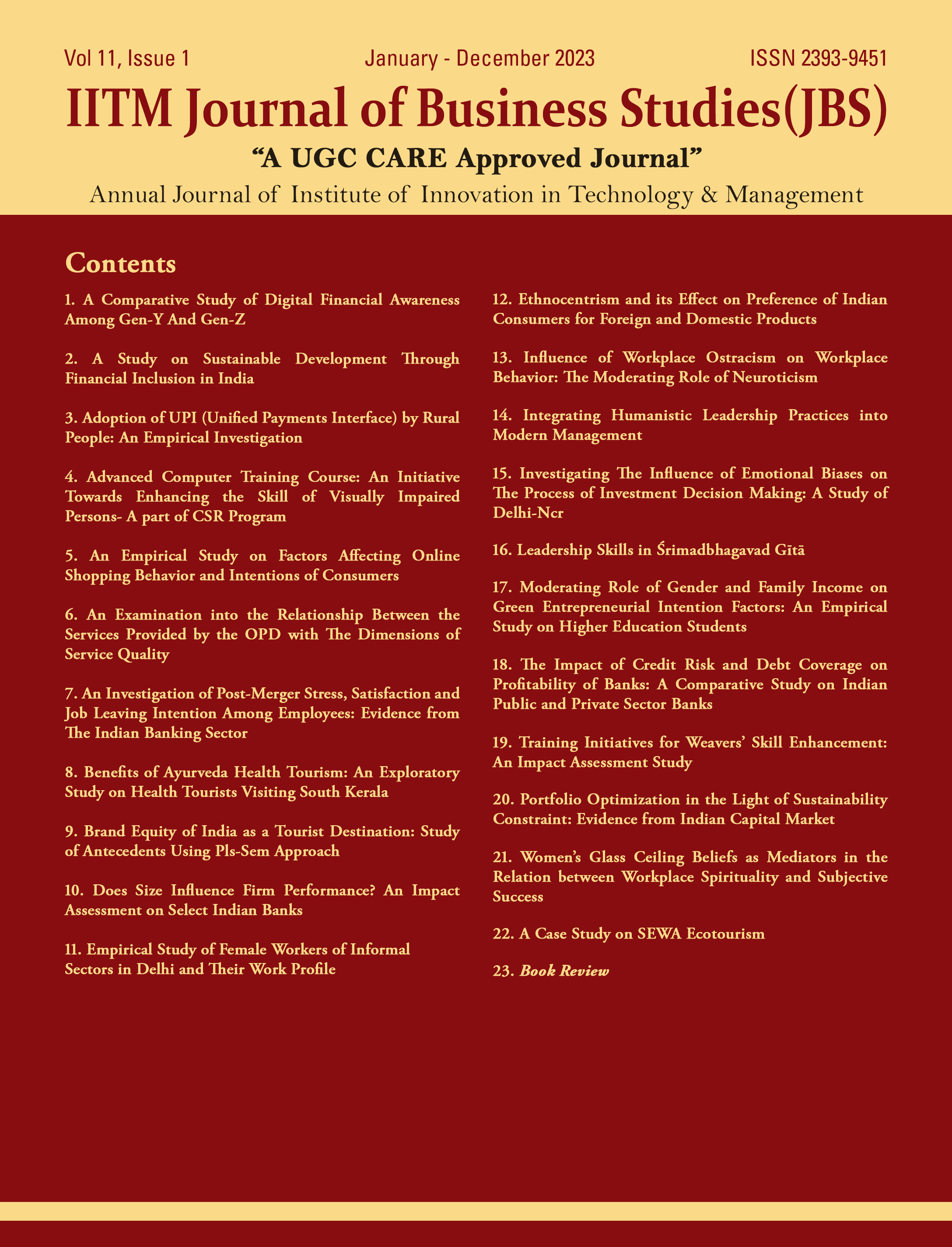Digitization: An empirical study on Clients’ Perspective
Keywords:
Digitization, Digital Financial, Inclusion, Digital India, Digital PaymentsAbstract
Digitization is a process of increasing the reach and capacity of the financial service providers. It enhances the process of financial inclusion. The Government of Indian and other institutes are making tremendous efforts to increase the reach of financial services, still among the rural population it is very low. The innovations in digital modes of transactions has increased the capacity of the financial service providers manifolds. Hence, the present study was conducted to analyze the impact of digitization in rural parts of Assam. The business correspondents of four banks, their customers, and parameters of digital infrastructure in the location was studied. It was observed that in the selected location financial and digital literacy among the borrowers is low. The reasons cited by the customers for not using digital modes of transactions are related to their low level of awareness about the product and lack of confidence.
References
CDFI (2020). Financial Literacy Critical for meaningful inclusion, published by Centre For Digital Financial Inclusion (CDFI), pg 1-24.
IFMR Report (2018). Technology for Financial Inclusion (As part of ‘Digital Financial Inclusion and Consumer Capabilities in India’) Repository of Technology Service Providers, published by J.P.Morgan group, pg 1-33.
IFMR Report (2017). Digital Financial Inclusion and Consumer Capabilities in India- A handbook for financial service providers, September 2017, published by J.P.Morgan, pg 1-131.
Klapper, Leora, Annamaria Lusardi and Peter van Oudheusden (2014). “Financial Literacy around the World,” Standard & Poor’s Financial Services, https://gflec.org/wp-content/uploads/2015/11/3313-Finlit_ Report_FINAL-5.11.16.pdf?x83489.
Ministry of Finance (2020). “Pradhan Mantri Jan Dhan Yojana: Progress Report,” https://pmjdy.gov.in/ account
Qazi, Moin (2019). “The Truth about India’s Financial Inclusion,” The Banking and Finance, https://bfsi. eletsonline.com/the-truth-about-indias-financial-inclusion/.
Rao K Srinivasa (2020). Digital literacy is integral for financial inclusion, published on January 02, 2020 https://www.thehindubusinessline.com/opinion/digital-literacy-is-integral-for-financial-inclusion/ article30432071.ece#
RBI (2020). “Payment System Indicators,” Mumbai: Reserve Bank of India, https://rbidocs.rbi.org.in/ rdocs/Bulletin/PDFs/43T_110320204A6835B416FA49928DA6D2F4B6138240.PDF. 9. Schueth Samuel, and Moler Alex (2017). The Effects of Demonetization on Financial Inclusion in India, Published by Intermedia, pg no 1-37.
Telecom Statistics India-2018, Economics Research Unit – Statistics Department of Telecommunications Ministry of Communications Government of India New Delhi
USAID (2019). India Digital Financial Inclusion-Journey Map Report, published by mstarproject. wordpress.com, pg 1-54.
World Bank (2017a). “Global Findex Report,” Paris: World Bank, https://globalfindex.worldbank. org/#GF-ReportChapters.

